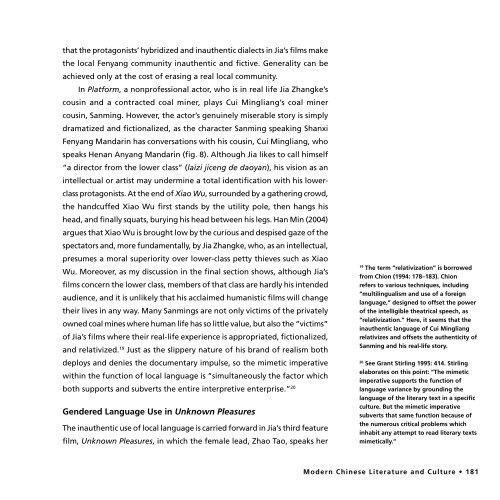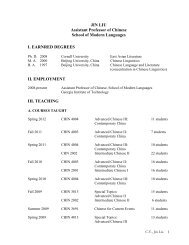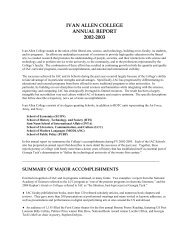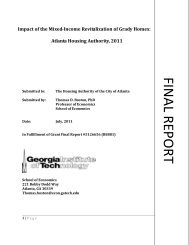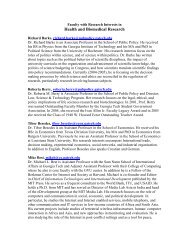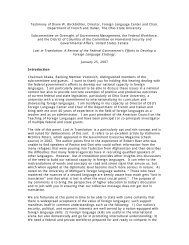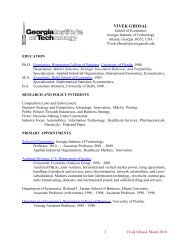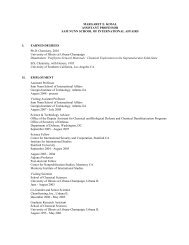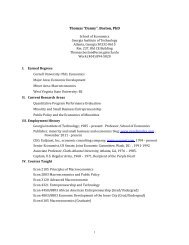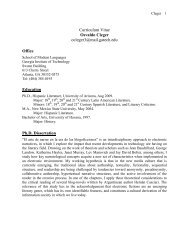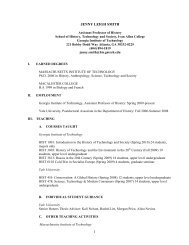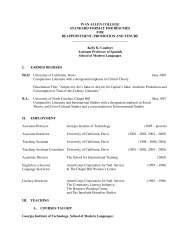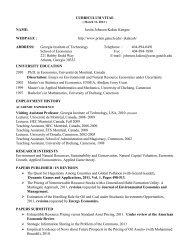Read this paper
Read this paper
Read this paper
You also want an ePaper? Increase the reach of your titles
YUMPU automatically turns print PDFs into web optimized ePapers that Google loves.
that the protagonists’ hybridized and inauthentic dialects in Jia’s films make<br />
the local Fenyang community inauthentic and fictive. Generality can be<br />
achieved only at the cost of erasing a real local community.<br />
In Platform, a nonprofessional actor, who is in real life Jia Zhangke’s<br />
cousin and a contracted coal miner, plays Cui Mingliang’s coal miner<br />
cousin, Sanming. However, the actor’s genuinely miserable story is simply<br />
dramatized and fictionalized, as the character Sanming speaking Shanxi<br />
Fenyang Mandarin has conversations with his cousin, Cui Mingliang, who<br />
speaks Henan Anyang Mandarin (fig. 8). Although Jia likes to call himself<br />
“a director from the lower class” (laizi jiceng de daoyan), his vision as an<br />
intellectual or artist may undermine a total identification with his lowerclass<br />
protagonists. At the end of Xiao Wu, surrounded by a gathering crowd,<br />
the handcuffed Xiao Wu first stands by the utility pole, then hangs his<br />
head, and finally squats, burying his head between his legs. Han Min (2004)<br />
argues that Xiao Wu is brought low by the curious and despised gaze of the<br />
spectators and, more fundamentally, by Jia Zhangke, who, as an intellectual,<br />
presumes a moral superiority over lower-class petty thieves such as Xiao<br />
Wu. Moreover, as my discussion in the final section shows, although Jia’s<br />
films concern the lower class, members of that class are hardly his intended<br />
audience, and it is unlikely that his acclaimed humanistic films will change<br />
their lives in any way. Many Sanmings are not only victims of the privately<br />
owned coal mines where human life has so little value, but also the “victims”<br />
of Jia’s films where their real-life experience is appropriated, fictionalized,<br />
and relativized. 19 Just as the slippery nature of his brand of realism both<br />
deploys and denies the documentary impulse, so the mimetic imperative<br />
within the function of local language is “simultaneously the factor which<br />
both supports and subverts the entire interpretive enterprise.” 20<br />
Gendered Language Use in Unknown Pleasures<br />
The inauthentic use of local language is carried forward in Jia’s third feature<br />
film, Unknown Pleasures, in which the female lead, Zhao Tao, speaks her<br />
19<br />
The term “relativization” is borrowed<br />
from Chion (1994: 178–183). Chion<br />
refers to various techniques, including<br />
“multilingualism and use of a foreign<br />
language,” designed to offset the power<br />
of the intelligible theatrical speech, as<br />
“relativization.” Here, it seems that the<br />
inauthentic language of Cui Mingliang<br />
relativizes and offsets the authenticity of<br />
Sanming and his real-life story.<br />
20<br />
See Grant Stirling 1995: 414. Stirling<br />
elaborates on <strong>this</strong> point: “The mimetic<br />
imperative supports the function of<br />
language variance by grounding the<br />
language of the literary text in a specific<br />
culture. But the mimetic imperative<br />
subverts that same function because of<br />
the numerous critical problems which<br />
inhabit any attempt to read literary texts<br />
mimetically.”<br />
Modern Chinese Literature and Culture • 181<br />
MCLC 18.2.indd 181<br />
12/20/06 2:01:37 PM


